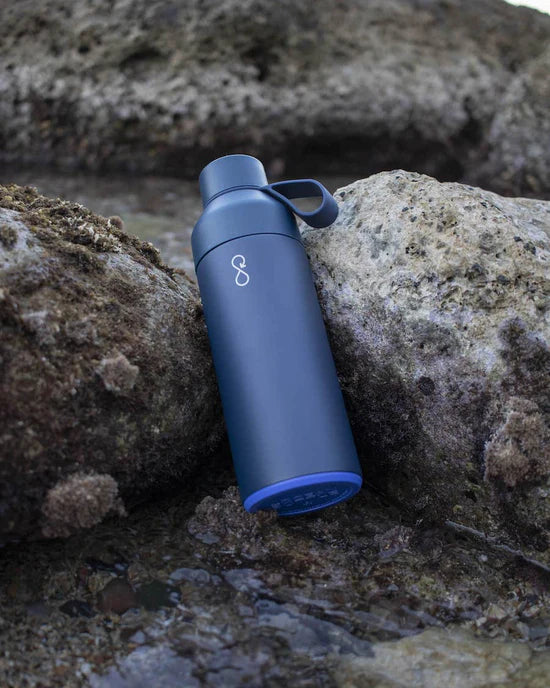This July we’re taking part in the global movement that helps millions of people be part of the solution to plastic pollution – so that we can have cleaner streets, oceans and communities. It's not easy to go completely plastic free. And that's OK, we don't need a few people doing plastic free perfectly, instead we need millions of people doing it imperfectly to truly have an impact. With plastic in our ocean expected to quadruple by 2040, we’ve got no time to waste and need as many people on board as possible.
This April, we conducted a nationwide survey to find out more about perceptions towards the ocean plastic crisis and to what extent we care about the ocean. The survey got some revealing results - read on to learn more and let us know if you agree, we always like to hear from you!
Gen Z’s are less likely to act towards tackling ocean plastic than any other demographic:

In the survey, it was revealed that Gen Z’s (18-24yrs) are less likely to act towards tackling ocean plastic than any other demographic with only 38% responding that they care about the ocean plastic crisis vs 54% of people aged 55 years old and above. Further results show that 71% of Gen Z’s care less for the ocean in general compared to Boomers (55yrs+) with 47% stating they love the ocean.
Only half of the UK think that they can personally make a difference to the ocean plastic problem:

Only 54% of respondents feel like they personally can make a difference to the ocean plastic problem, with 22% of people feeling like they can’t make a difference.
Here at Ocean Bottle, we believe that we can all make a difference. The plastic pollution problem might seem overwhelming and out of our control, but there are many things that collectively we can do to reduce the amount of single-use plastic we use.
Here are some top tips from the Ocean Bottle team:
Kat, Operations Manager: Reuse your ASOS plastic delivery mailing bags for selling your own clothes second hand on Depop. Not only is it a great way of giving single use plastic a second life, but also encourages sustainable fashion by sending your pre loved outfits to a good home rather than landfill
Morgan, Head of Growth: Fridges are more efficient when they're full (less air escapes when you open the fridge). Buy a big 5-litre Kilner jar and fill it with water. This means you'll always have fridge-cold water, and it actually makes your fridge more efficient.
Char, Team Support Manager & resident Marine Biologist: Sanitary products make up a large percentage of plastic pollution - with 200,000 tonnes (the equivalent of 1,739 blue whales!) of menstrual waste ending up in landfills each year in the UK alone. Reusable sanitary products are a much comfier, eco-friendly and natural way to deal with the monthly red devil - as they also don't contain any fragrances, dyes or chlorines that are found in disposable sanitary products. They'll also save you a tonne of money - especially as they aren't pink taxed!
As plastic pollution continues to cause catastrophic effects to our ocean, it’s vital we make a significant shift in not only how organisations produce and manage plastic but also how consumers are to be more accountable for their own management of plastic waste. If you want to get involved with making an impact this Plastic Free July, head here to sign up to the challenge and discover more from their resources.

Survey conducted by One Poll on behalf of Ocean Bottle (April 2021) on a nationally representative cohort of 2,000 UK adults.



